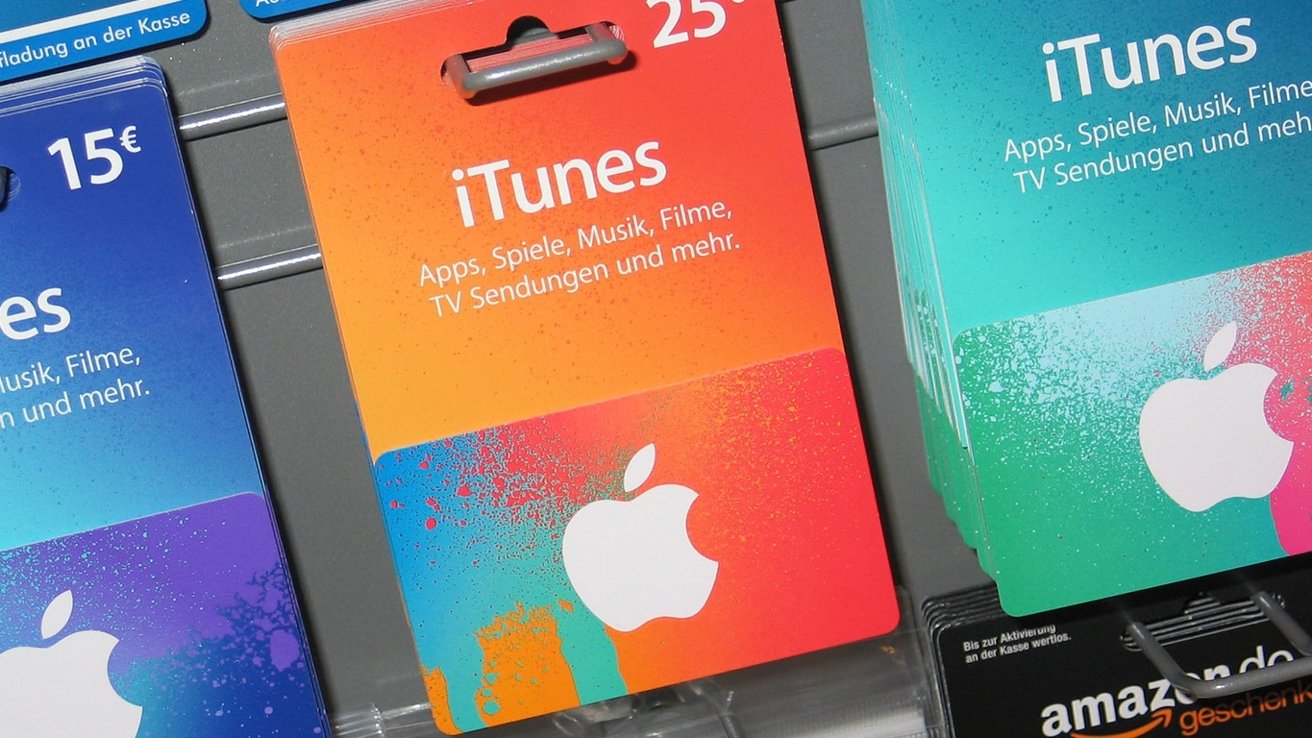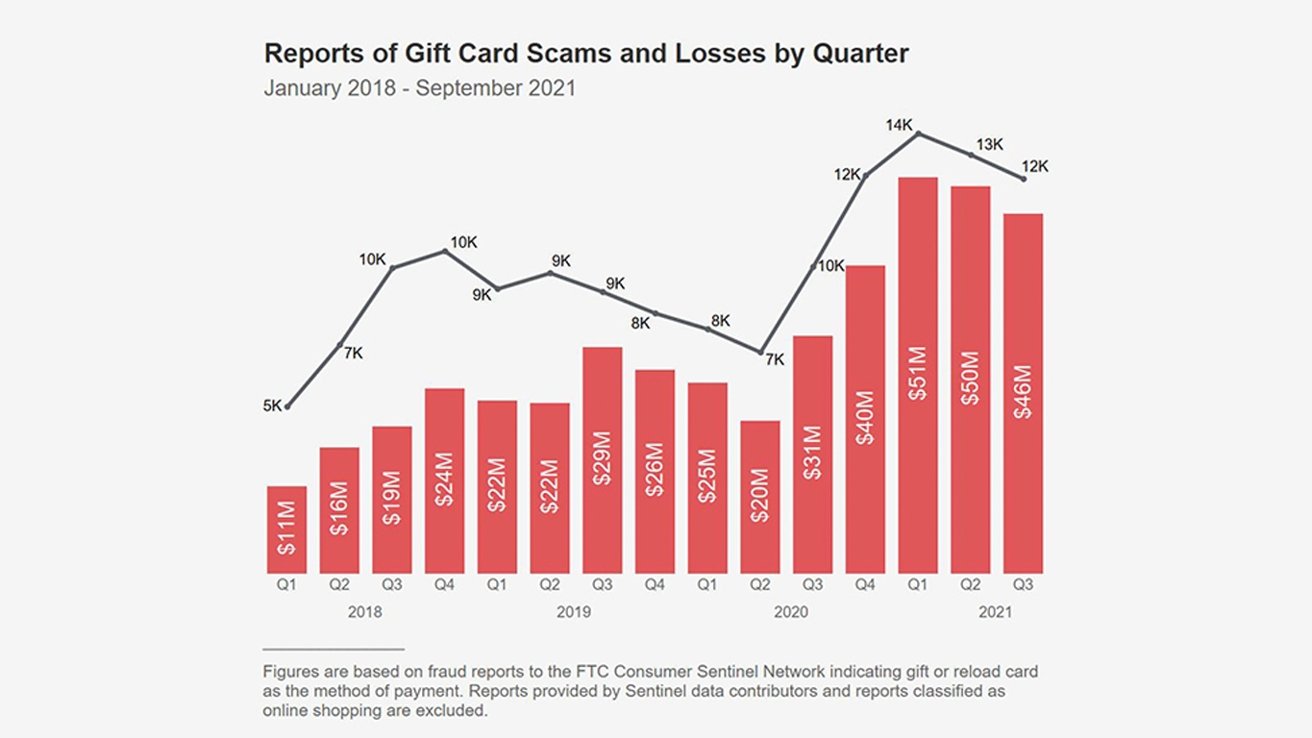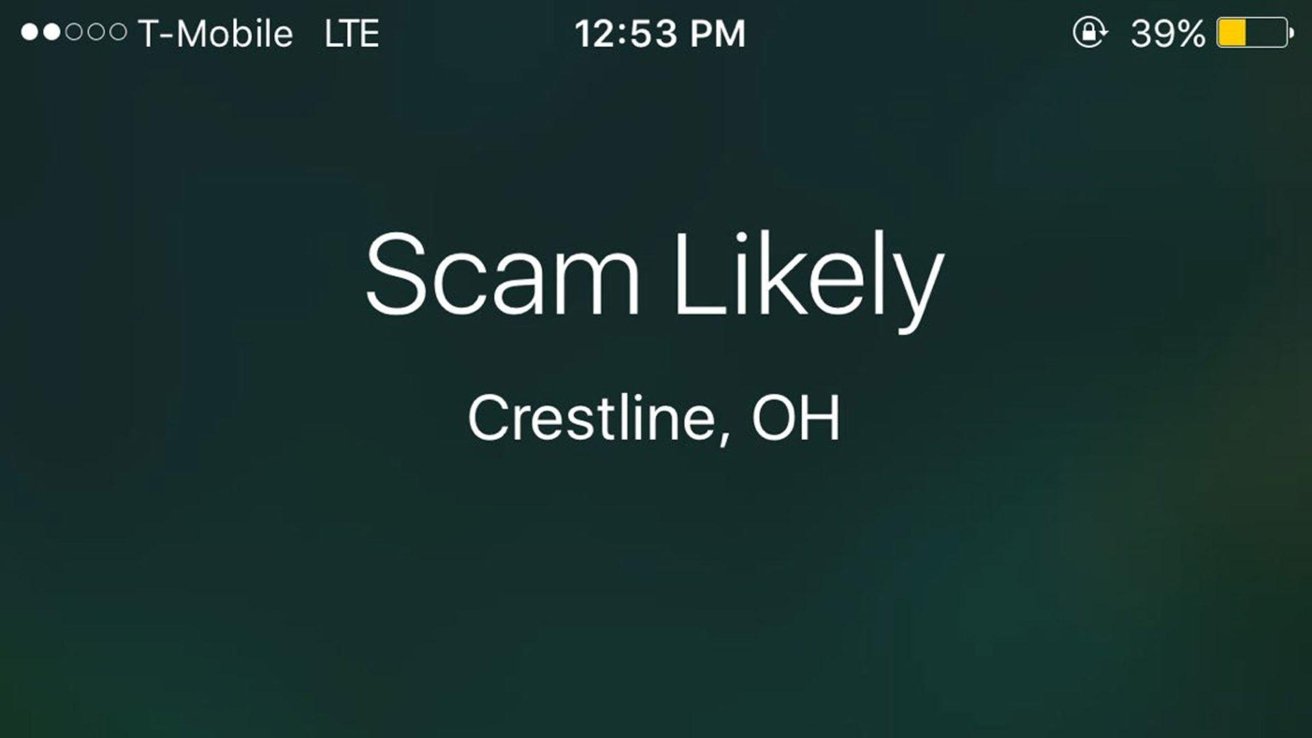How to not fall for gift card scams
Gift card scams are on the rise, with Apple gift cards amongst the top fraud targets. Here's how to keep yourself and your loved ones safe.
There's a good chance that you or someone you know has received a questionable phone call from someone claiming to be Apple or Amazon. Maybe they claimed that there was a problem with your account and that you needed to settle the debt quickly and discreetly.
If you hung up and pretended that the call never happened, you did the right thing — you avoided being caught up in a gift card scam.
Unfortunately, not everyone gets away unscathed. In the first nine months of 2021, the FTC states that more than 40,000 people reported being scammed — and those individuals lost more than $148 million in total.
And these are only the individuals who have reported being scammed — it says nothing of those who didn't know they were scammed or too embarrassed to come forward.
What a gift card scam is
A gift card scam is when a malicious actor impersonates an agency such as the IRS, or a company such as Apple and attempts to trick a victim into giving them a large amount of money in gift cards.
The FTC reports that most scammers will ask for Target gift cards, but Google Play, Apple, eBay, and Walmart cards are commonly requested.
The scams primarily rely on fear tactics, with scammers threatening to charge a victim's account with tens of thousands of dollars of fees unless the victim immediately heads to their local gift-card retailer and supplies them with hundreds — or thousands — of dollars worth of cards.
Newer scams may even have someone posing as a law enforcement officer threatening to arrest the victim. Sometimes scammers claim to be a law enforcement officer who has a loved one held in jail. Again, the scammer will request gift cards to make the problem disappear.
In the winter, scammers may pose as utility companies threatening to turn off gas or electricity unless paid in gift cards.
There are dozens of other scams, too, with new ones emerging all the time. It is vital to make sure that you and everyone in your family keep vigilant about these calls.
How to recognize a gift card scam call
It is critically important that you understand that no agency — not the police, IRS, bill collectors, bail bonds agencies, student loan collector NELNET, nor any other agency — will ever ask for gift cards as a way to settle debts.
Additionally, no company — not Apple, Amazon, eBay, Target, Microsoft, or any others — will ask you to provide a gift card as means of solving an "issue" with your account. In fact, Apple has an "About Gift Card Scams" page dedicated to ensuring that customers know not to purchase gift cards to settle debts.
Should you receive a questionable call, avoid giving out any personal information about yourself. For example, don't confirm that you have an Apple or Amazon account. Also, don't give out your name, location, or any identifying information.
Do not give a potential scammer access to your computer. Do not visit any website, click any links, or download any files that they tell you to.
During the scam, the scammer will attempt to keep the victim on the phone the entire time to prevent them from calling anyone who could help. They also instruct users on what to say to a cashier upon checkout, as they are aware store employees are trained to help spot scams.
Always be sure to listen to what the caller is asking. The second they ask for payment via a gift card, you can be positive it is a scam.
Again, no agency or business will ever ask you for a gift card as payment or to settle a debt.
Where to report losses
Since 2018, the losses from gift card scams have increased in both frequency and median loss size. According to the FTC, losses of $5,000 or more have increased from about 8% of reports in 2018 to about 14% in the first nine months of 2021. Over the same period, median reported losses increased from $700 to $1,000.
It's better to report your losses than it is to feel embarrassed. This includes reporting losses for family members as well.
If someone has convinced you or someone you know to send them the gift card code, keep the gift card and your receipt. Report the scam to the place where you bought the card, to the company that issues the card (e.g., if it is an Apple gift card, report the loss to Apple,) and then report the experience to ReportFraud.ftc.gov.
Warn others in your family
While you may feel you are impervious to gift card scams, you likely know someone who isn't. Scammers often target people who don't quite know better — college-age adults and senior citizens are common marks.
Talk to your parents, grandparents, children, and neighbors about gift card scams. While it may be a strange subject to bring up out of the blue, it's essential to keep your family informed and safe.
 Amber Neely
Amber Neely













 Chip Loder
Chip Loder
 Andrew Orr
Andrew Orr
 Marko Zivkovic
Marko Zivkovic
 David Schloss
David Schloss

 Malcolm Owen
Malcolm Owen

 William Gallagher
William Gallagher







